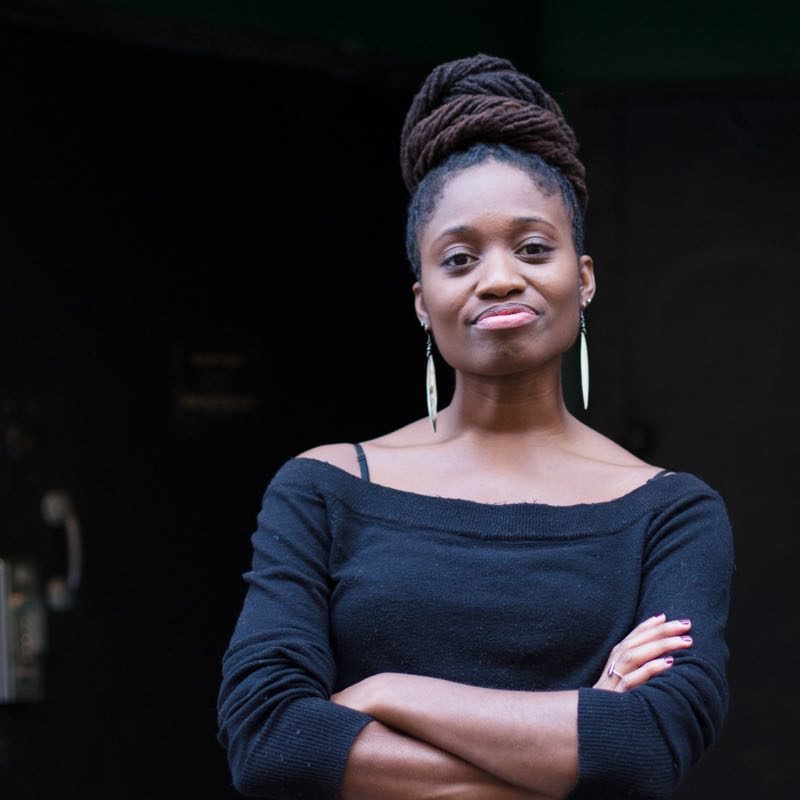Aleshea Harris on “Is God Is”
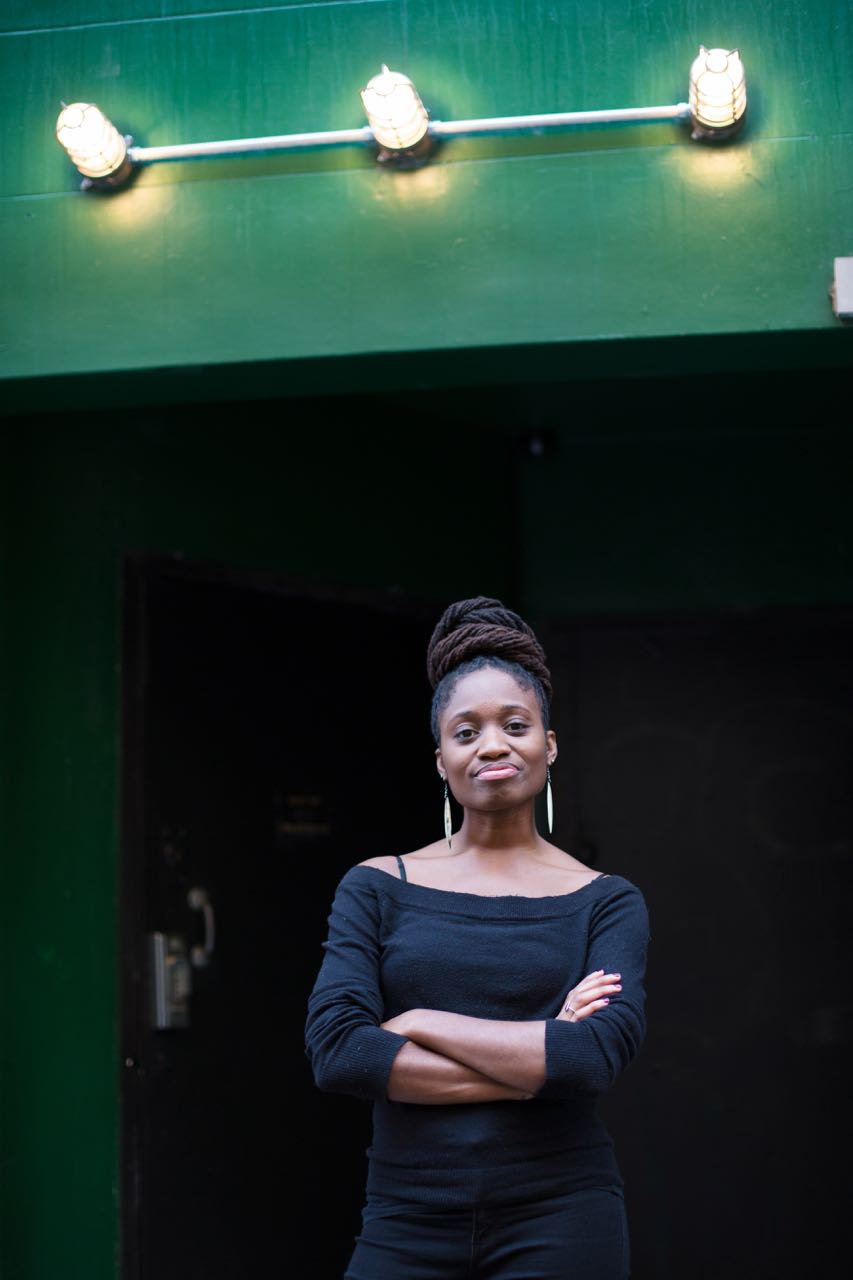
Written by Victoria Myers
Photography by Tess Mayer
March 8th, 2018
The new play Is God Is has become an early hit of the spring Off-Broadway season, earning rave reviews and multiple extensions. The play, written by Aleshea Harris and directed by Taibi Magar, is currently playing at Soho Rep and is a mashup of Western and Greek drama that follows two twin sisters seeking revenge and traveling from the Deep South to the California desert. The play, which won the 2016 Relentless Award, spans styles and modes of storytelling, and makes use of Aleshea’s background in both playwriting and spoken word poetry. We recently talked with Aleshea about her inspiration and process for writing Is God Is, writing women who want revenge, her use of language, and more.
What was your inspiration for writing Is God Is?
I was really interested in writing a revenge tale. I love revenge narratives. I wanted to write one that featured black women who spoke in a particular way—the way that I spoke and sometimes speak being someone who grew up mostly in the south—and wanted to be unapologetic and no holds barred in their manner of expression. I just wanted to tell this story.
One of my prompts to myself was, if I were to write an ancient Greek tragedy, taking cues from that form, what could that look like? What would the family look like? How would I populate the landscape, etcetera etcetera? I have been interested in westerns for a while. I just went for it and did a mashup, and had lots of fun writing a crazy play for myself first, the kind of play that I would want to read.
The themes of revenge and anger are still unusual things to see depicted in media and, especially with women, are things that people have a lot of ideas about how that should look. Was that something you were interested in exploring with this play? Did you think a lot before you started writing about how women and anger had traditionally been portrayed and how women and revenge had traditionally been portrayed?
I thought very specifically about how black women and anger had been portrayed, how black women and revenge had been portrayed—or, I should say, not portrayed—and about what I feel like is a cultural expectation that black women gain their strength through endurance, through not being an eye for an eye, through not returning violence for violence, through being survivors. That’s a narrative that’s really familiar. I wanted to challenge that narrative. I wanted to tell a story of black women who had been abused and sought justice for themselves and each other.
Did you ever have any concerns of how people might react?
I certainly had concerns about how people would react. I still have concerns about how people will react, but I’m interested in the critical conversation that is, hopefully, going to be provoked. I think it’ll help me to deepen my work and my thinking about this piece. But certainly, the fear is there, because there’s so many ways that people can hyper-simplify this play and can also apply their own problematic mythologies to the figures in this play. Those are some concerns that I’ve had for sure.
Was there a method you used when you were writing to clear your head of all that?
I just sort of went for it, and went for it with an understanding that people are going to think that this is this [other thing]. People who think this about this kind of person are going to flatten this character, and make these presumptions, or not have a sophisticated and in-depth understanding or curiosity about this figure. But I’m going to write the story that I’m going to write, because people will bring that baggage into the theatre no matter what I do.
Were you also interested in subverting some of the expectations?
Absolutely. I was interested in subversion, and absolutely interested in saying, “This is what you think,” and maybe setting up an expectation and then shattering it. That’s a great space of interest.
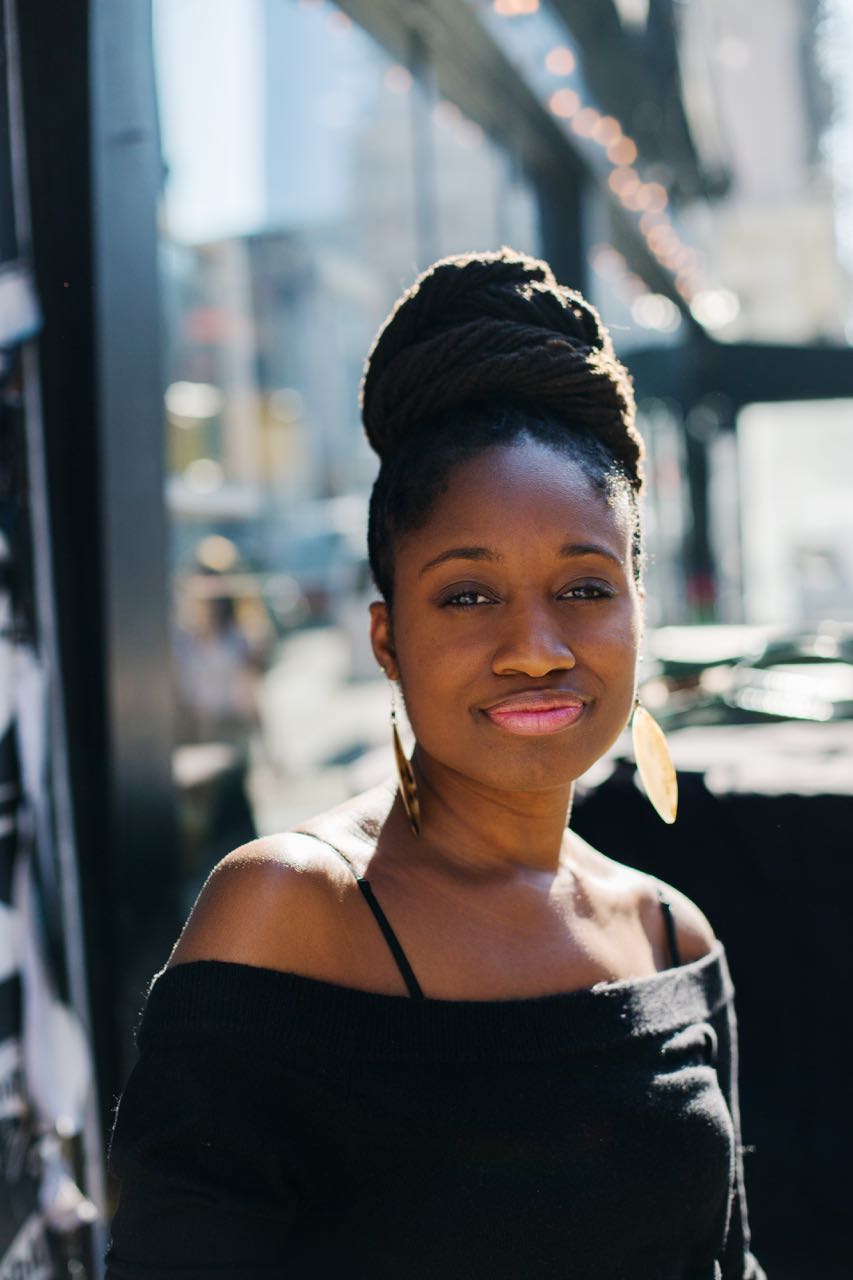
When you were writing, did you do a quick or slow first draft?
It was a slow first draft. I remember struggling with finding the rules of the world of this play, and really settling into the language of this play. It was slow, but once it got going, once I got past the scene with the lawyer, I sort of understood what was going on and where I wanted to go and was able to fly.
When you’re writing, are you visual? Did you know in your mind what you wanted it to look like and what you wanted the characters’ physicalities to be?
I had some ideas about some of the physical. Having lived in Castaic [California], for example, I had some ideas about what Castaic feels like in my mind and in real life, but I could never have known how to translate that onto the stage. I definitely had ideas about the physicality of the twins, how they might move through space, but I try not to get too settled on that, because I’m interested in what my collaborators can bring to the table, what the language that I’m giving them signifies to them, and how it allows them to work through a process that will allow us to arrive at something incredible.
Going back to subversion, people assume a lot based on what characters look like.
I think for some people, they think that when they come to the theatre to see a play that’s written by a black playwright about a bunch of black people, they think that they know what that means. I am very conscious and aware of people having ideas about what that means, what it sounds like, what it looks like, what it feels like, and consciously challenging that through this work, for sure.
There are some areas of culture that are explicitly referenced in the play, like Westerns and Afropunk. What was your interest in them and how did you go about incorporating them stylistically into the piece?
My interest in Westerns goes back to childhood. I just loved a Western. I loved the familiarity of it. You recognize the tropes. You feel like you know where the story is going. You may not know how it’s going to get there. I was interested in doing that. Also, because I did not see black women in Westerns, wanted to insert myself into that genre. That was my interest there.
In terms of Afropunk, I’m in love with the sensibility of that movement. Hopefully, I’m a contributor to the sense that, again, black people can do anything, that there’s a story that exists outside of the mainstream sort of what I think is dehumanizing and flat reflection or depiction of who we are and what we can do. I was interested in being subversive and irreverent.
In terms of hip-hop, I think a lot about rhythm, and I think also about strength of narrative. I’ve been listening a lot to Kendrick Lamar’s album “Damn,” and in one song he talks about what he’s going to do if someone hurts people that he loves. I feel like that’s a familiar narrative in hip-hop music, as well as the love of mother narrative. It’s just sort of in the consciousness and in the spirit of that music. I was very conscious of tapping into that.
What other areas of culture affected your writing process?
I think Toni Morrison is a great space of influence. She’s experimental in her writing. Her writing is deeply felt. She’s concerned with black girls and women in the same ways that I am. Suzan-Lori Parks, without question—an experimental artist, a black woman artist, who writes not just beautifully creatively, but critically, about being a theatre artist. The summer that I wrote the play, I was listening to “Bitch Better Have My Money” by Rihanna. I saw that video quite a lot, and that’s a revenge narrative in that video. I’m greatly influenced by spoken word poets from the south. I did a great deal of spoken word poetry and was competitive in that space for a while. In terms of rhythm and sort of crafting climax through language, [that was] certainly an influence. I was influenced by Ionesco’s graphic version of The Bald Soprano in the writing of this play. I’m really interested in the performance of language on the page. I felt like I was being given permission by Ionesco, and just sort of went for it in this play.
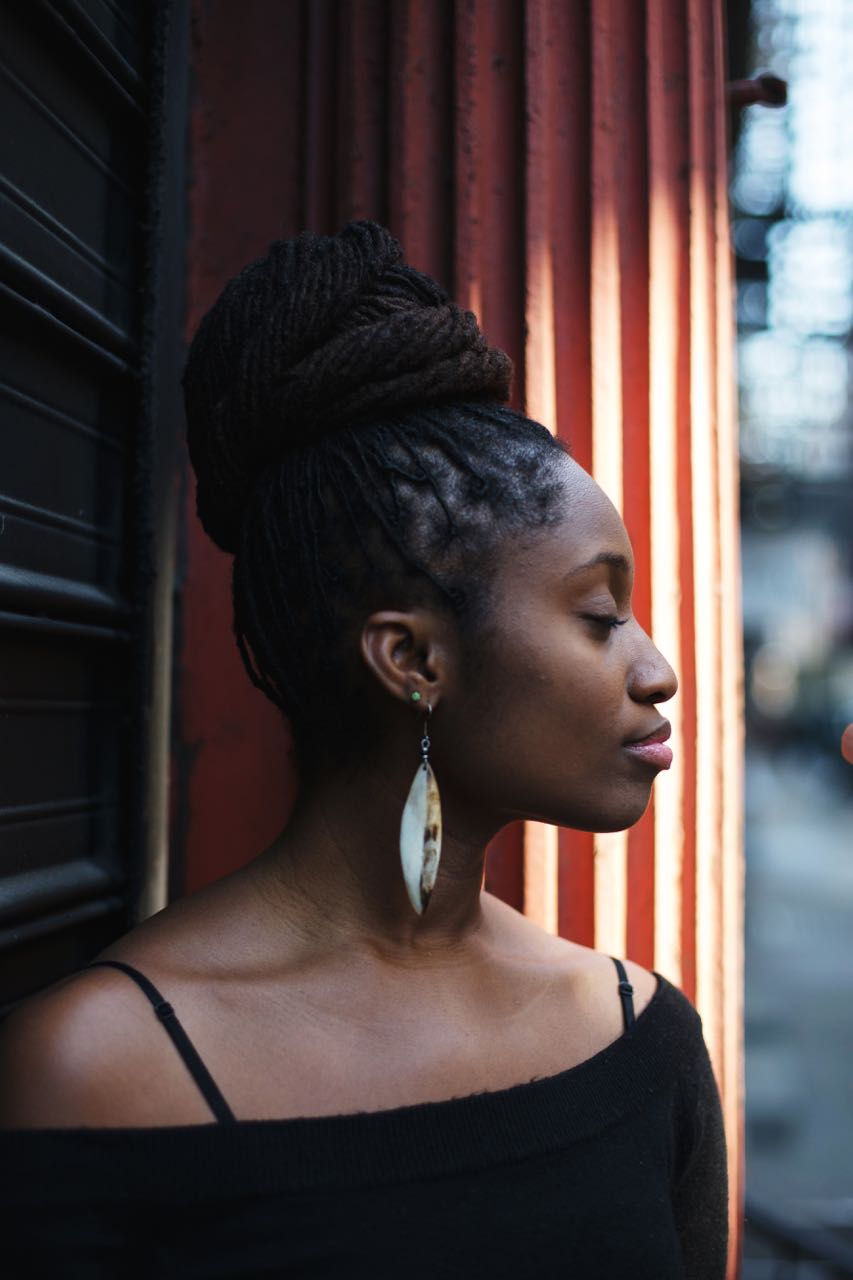
How did you use language as a way to structure the play?
As I mentioned, I was greatly influenced by Ionesco’s graphic version of The Bald Soprano, also by Suzan-Lori Parks, and also by my mentor, Doug Kearney, who is a visual poet and a librettist. I am really interested in the ways that language impacts on the body of a performer and on the imagination of all of the collaborators. I was really excited about a reader’s experience of this play. When I wrote this, I didn’t know that it would be as well-received as it has been. I was really interested in when someone sits down to read this play, what is their experience of the play in addition to what will happen if it’s given some bone and some flesh? For example, there’s a moment in a play when there are two characters who are changing the status of another character who had been quite powerful. The language kind of syncs, and the idea is that the language is doing what these two figures are trying to do to the other person, trying to lower them, bring them down. There’s certainly playing with font size. That has to do not only with the volume that the character might be speaking with in that moment, but how big they feel. Certainly there are moments when Anaia, who’s the less aggressive of the twins, has the most tiny font because she’s someone who, because of her disfigurement, feels quite small in the world. Those are some of the ways that language is telling its own story, is performing in its own way on the page, and hopefully doing something for the reader, allowing them to have a more visceral experience of the work.
Did you have a scene or a moment that you found the most challenging to write?
Yes. The moment when they get to the lawyer I remember struggling with, because I was still trying to crack the rules of this play. That was challenging. Also, I have many drafts of the very first scene, because I had to ask myself, how do I introduce these twins to the listener, to the person experiencing this play? I didn’t want it to be corny. It needed to feel right. I’m doing this thing where the characters narrate and tell their own stories. I landed on that, and that ended up feeling quite right, but that was tough. How do I just introduce these people? Because we need to know a couple of things about them. I don’t want some terrible exposition. I want to get into the story. Yeah, that was a challenge.
What influenced your sense of humor?
It, to me, is a really black—as in African—Afro diasporic humor. The people I spend my time around, the sensibility of the black south, has greatly influenced my humor. It’s sort of dark and sort of pokes fun at itself. This is a heavy play, but there are moments when I feel like there’s space for humor—it’d be hard to pin down where, specifically. I think it’s just that I’ve had so much exposure to that kind of humor that it’s just in my consciousness.
Do you have a spiritual life, and do you feel like that affected your writing of this play?
I think of myself as a spiritual person. I’m not religious. I was interested in playing with the idea of God. I recognize that some people will be troubled at who God is in this play and the references to God. But no, I’m not a terribly spiritual person. I was thinking more about spirit in terms of how people feel about themselves and how they honor themselves and each other, and what that has to do with mythology, especially race and gender-based mythologies.
There’s the sort of baggage or the energy that people bring into the theatre. Again, I think it goes back to what I was saying about there being certain expectations placed on black women and certain ideas about how we can exist on stage, what stories we get to be in, whether or not we get to be quirky, or we’re always sort of strong and aggressive. I think that in terms of spirit, what I’m trying to say is that we can be whatever we want to be. What I’m trying to challenge is the idea that we have to exist in a box, both in the greater culture and mythology of the United States or the world, in terms of black womanhood, but also in terms of the American theatre’s mythology around the bodies of black women and the spirits of black folks.
How do you feel about this play hitting at this particular cultural moment? Do you feel like the reception or people’s reaction to it would have been different if it had been a year ago, two years ago?
I think that with this #MeToo movement, there are things that people are thinking about in terms of how women are treated in society that are at the forefront of our consciousness and that are maybe making some people more receptive, more interested in a complicated conversation around women’s anger and girls’ anger, and where and how it might be justified and useful. I don’t think that that would have been the case a year or two ago. I also think because of what’s happening in the presidency, there is perhaps more interest in the mainstream in marginalized voices and stories, and again, a complicated conversation with those voices and stories. That’s really exciting to me.
In terms of development of new work in theatre, what do you think would make the process better?
I think not having a sort of cookie-cutter process for every writer, because what we need and when varies so greatly. I think starting with a really honest and frank conversation about what it is that the writer and/or other folks involved in process need [would be helpful]. I think a lot of people talk about not reading a play to death. It can be tricky to get into a room with people you don’t know and have a reading and invite an audience to say whatever they want to say about your work. I, personally, don’t believe in that. I think that the writer should choose her critical friends, and those should be the folks she listens to. I don’t think it’s always useful to just have this barrage of responses to a work. I would say encourage and nurture the writer’s voice and her ideas about what it is that she needs, even if it’s, “I just need to do this,” and then walk out of the room and go away. My feedback can be your responses to it that aren’t a Q&A afterward.
Do you feel that there are ways that theatre could collaborate better with other cultural institutions in the city or just other areas of the arts?
I think it’s really interesting that 3 Hole Press, which published this play, paired it with a poet. A poet wrote the intro for the 3 Hole Press’s and also Soho Rep’s version of the publication of this play. I think that that’s a really interesting way to bring poets to this work and to bring readers of plays to Dawn Lundy Martin and her work and what she’s doing as a poet. I think looking for organic ties, cultural ties between what’s happening in the theatre and what might be happening in other areas of the world is probably a good way to do things and, I think, effective. That would be my offering.
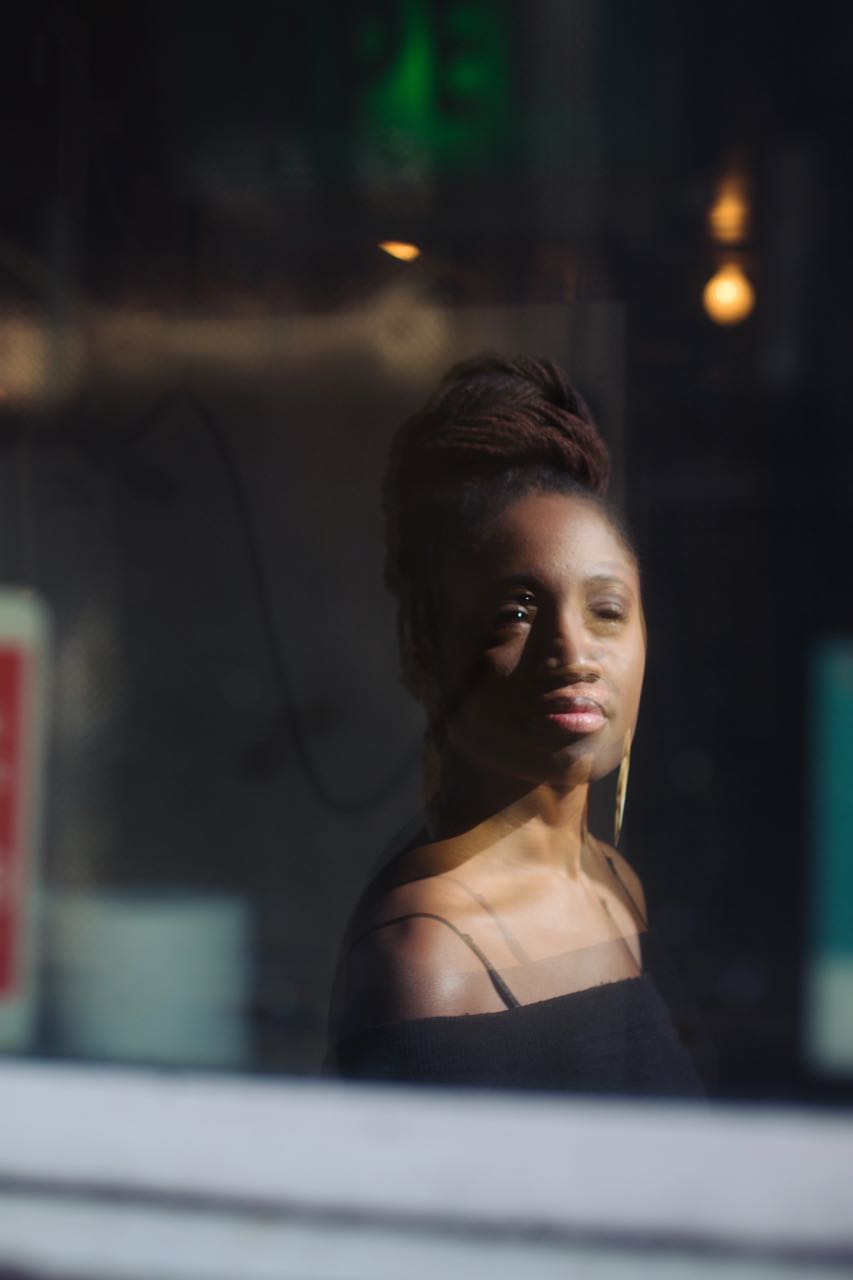
What’s something that you feel you know now about life in the theatre that you feel would have been very helpful for you to know earlier?
I wish that I’d appreciated how difficult it can be and just understood that everyone has their difficulty, no matter their art form in this, and that what makes it easier and more manageable is sustaining community outside of each process. Who’s my community, no matter what play is going up or not going up? Who are the people that I get to return to who share their love of this art form? I wish that I’d known and appreciated that as a younger theatre artist.
What was your process like learning how to both do your work and also have a life, especially because it’s not your traditional 9:00 to 5:00 thing?
As I got a little older and wiser, if I had another job, it was about having a job that I could leave [and still have] the brain space and the energy to write—getting a job that nurtured that process. I was lucky I got to teach at Cal Arts, and I was teaching about interpreting plays. I was jazzed up and nerding out about plays all the time. That kept me excited about making my own work.
I think finding a balance and just staying hungry. I feel like I see a lot of artists kind of fall by the wayside because they’re enslaved by their student loan bill, and it’s easy to just be tired. It’s really exhausting. I think, again, having community and accountability with other people is really helpful.
You touched on this before in terms of how work is spoken about, but what do you wish would change?
If I’m thinking about critics who write for major publications, because that can have so much of an effect on the life of a play and on the career of an artist, I really hope that critics are invested in having a degree of cultural competency around the work that they’re writing about, especially since so many critics are quite often white men. What do you know about the culture that this artist springs from and what it is they might be wrestling with in the world? How can you take that into account as you experience their work, and then speak to others about it?
Something that has come up across disciplines is the thought that women put into how they present themselves when they are going to theatre companies and talking to people, both in terms of how aggressive they should or shouldn’t be and what they wear. Is that something you think about?
I definitely think about what I’m wearing, how I state my opinion. I believe that as a black woman, there are these ideas that people have about us, unfortunately, that we are aggressive, that we aren’t as intelligent. There is this added pressure to be extra articulate, to be extra informed, and to make sure that I’m not coming off as too aggressive. I didn’t feel any of that here at Soho Rep, thankfully, but there have been moments when I’ve felt like, “Oh, this person isn’t taking me seriously at all. I wonder what that’s about.” It can be really tricky to navigate the politics of being in the theatre space, especially when you are an other, as I am.
What’s your dream project? What’s your dream for the next couple of years?
I’m working on a loose adaptive response to Philoctetes that’s a commission with the Denver Center. I would love to finish that up and get it out into the world. I think it could potentially be useful to people. With that play, I’m hoping to have a complicated conversation about what it means to be a black soldier in the United States of America, especially given so much that’s going on politically and terrible things that have happened in times past when people have been service members and then found themselves still dehumanized in the country that they served.
And I would like to be a park ranger. I love the high desert. You have to go back to school, and I don’t think I’m going back to school, but I would love to just have some opportunity to spend a lot of time in the desert. But also I want to write for the screen, and I would love to return to education. I had a great time teaching at Cal Arts. I’m hoping to continue to do that work.

